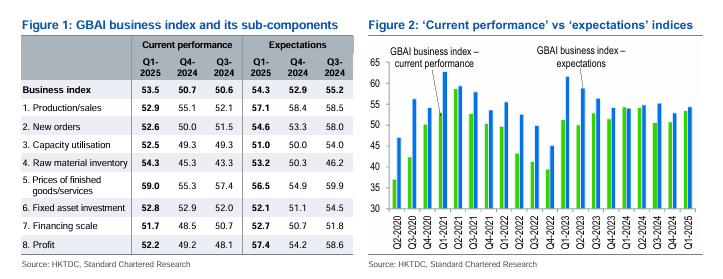China's Free Trade Zones: Pioneering Reform Amid Global Challenges
In an era marked by shifting geopolitical dynamics and economic uncertainties, China is advancing its commitment to reform and opening-up through the strategic development of its Pilot Free Trade Zones (PFTZs). Notably, the zones in Tianjin, Guangdong, and Fujian—established a decade ago—have emerged as frontrunners in this endeavor, implementing pioneering reforms that serve as models for national replication.
Tianjin: Enhancing Logistics and Financial Innovation
Tianjin's PFTZ has become a cornerstone for trade facilitation and financial innovation in northern China. With over 100 innovative measures implemented, the zone has significantly streamlined customs procedures, positioning Tianjin Port as the most efficient seaport in the Beijing-Tianjin-Hebei region. These advancements have reduced clearance times and enhanced the port's competitiveness.
Financially, Tianjin has pioneered cross-border leasing services, particularly in the aviation sector, attracting global enterprises and fostering a robust financial ecosystem. The zone's emphasis on integrating logistics with financial services has created a synergistic environment conducive to international trade and investment.
Guangdong: Bridging Mainland and International Markets
Situated within the dynamic Guangdong-Hong Kong-Macao Greater Bay Area, Guangdong's PFTZ has leveraged its strategic location to deepen economic integration with Hong Kong and Macao. The zone has expanded opening-up in sectors such as law, construction, finance, accounting, engineering, and tourism, issuing professional qualification certificates to relevant personnel. This initiative has made Guangdong a preferred destination for investment from Hong Kong and Macao.
In the realm of high-tech industries, the Nansha area has focused on developing third-generation semiconductors and integrated circuits, establishing an industrial park that supports the entire semiconductor value chain. These efforts align with China's broader goals of technological self-reliance and innovation-driven growth.
Fujian: Advancing Cross-Strait Integration and Technological Innovation
Fujian's PFTZ has introduced 59 innovative measures, with a significant focus on enhancing cross-strait economic integration and technological advancement. The zone has launched the country's first E-CNY Industry Alliance and achieved direct exchange between the renminbi and the Indonesian rupiah, expanding the practical applications of digital currencies.
In terms of cross-strait relations, Fujian has implemented Taiwan-specific measures, such as vocational qualifications services and emergency assistance, to build a demonstration zone for integrated development across the Taiwan Strait. These initiatives aim to foster closer economic and cultural ties between the mainland and Taiwan.
Expanding the PFTZ Network: A National Strategy
Beyond the pioneering zones, China has established a network of 22 PFTZs, each tailored to regional strengths and strategic objectives. For instance, the Xinjiang PFTZ, launched in November 2023, spans three areas—Ürümqi, Kashgar, and Khorgos—focusing on international trade, logistics, and cross-border cooperation. This expansion reflects China's commitment to leveraging PFTZs as instruments for regional development and international engagement.
Policy Support and Future Directions
The Ministry of Commerce has outlined a comprehensive plan to strengthen PFTZs through policy empowerment and reform task authorization. Key initiatives include supporting eligible PFTZs in conducting integrated innovation across entire industry chains in sectors like biomedicine, equipment manufacturing, and the marine economy. Additionally, the ministry aims to enhance policy support for PFTZs in central and western regions and border areas, enabling them to play a demonstrative and leading role in serving major national strategies.
Looking ahead, China's PFTZs are poised to continue their role as laboratories for reform and opening-up, driving economic growth, and facilitating international cooperation. Their success will depend on sustained policy support, institutional innovation, and the ability to adapt to evolving global economic landscapes.





















































First, please LoginComment After ~